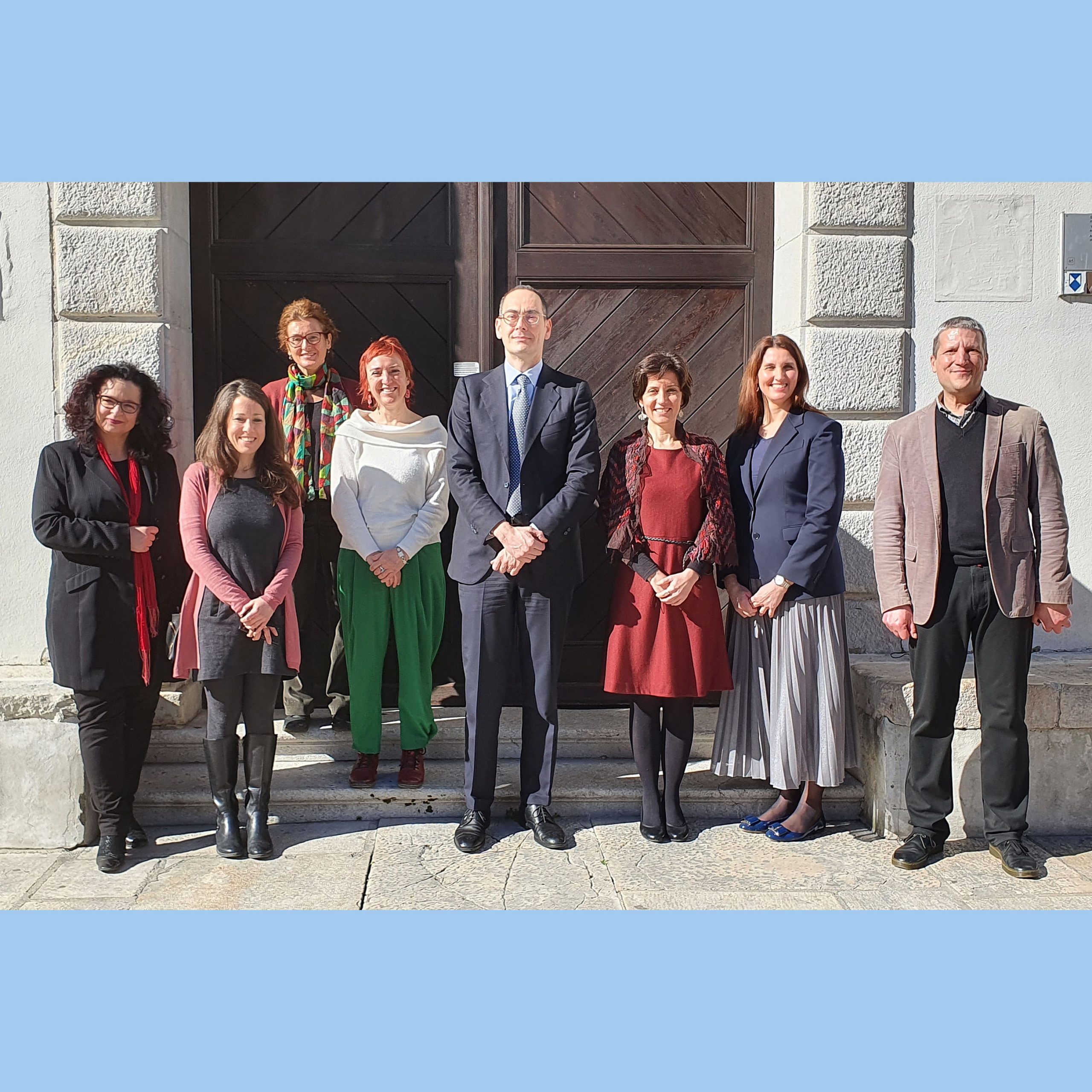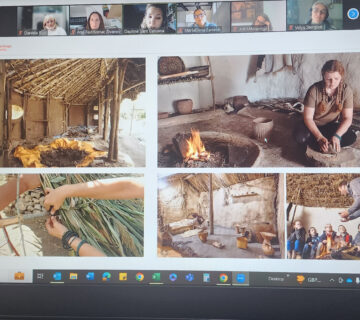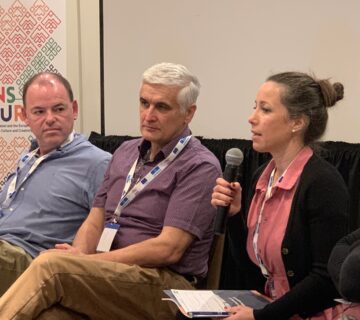UNESCO approves a new Chair for heritage and IE’s Managing Director, Helena Vičič, attended the inaugural meeting.
The Faculty of Humanities of the University of Primorska (UP FHŠ), in partnership with the Škocjan Caves Park (PŠJ), has established the UNESCO Chair of Interpretation and Education for Enhancing Integrated Heritage Approaches. The new Chair was approved by the UNESCO headquarters in Paris in August 2021 and it was formally established on 17 December 2021.
The Chair fills a gap in existing UNESCO Chairs globally. It recognises the key to sustainable heritage management in interpretation and education through integrated heritage approaches to answer the need for an inclusive approach to cultural and natural heritage management. The main guiding principles are participatory and value-based strategies, which can achieve integrated and sustainable natural and cultural heritage management through community involvement.
The department’s activities build upon the internationally renowned International Summer School of Museology and other educational and research activities of UP FHŠ, intertwined with the activities of Slovenia’s oldest UNESCO site, Škocjan Caves Park.
The newly established UNESCO Chair covers heritage studies, anthropology and cultural studies, archaeology, geography, history, intercultural studies, management, and biology from the scientific point of view.
As the core of an international network for joint research projects and an educational platform, the Chair will develop approaches and skills for heritage interpretation and education in a holistic perspective, based on the various discourses addressed by both partners’ research and activities (natural/cultural, tangible/intangible, authorised/alternative heritage discourse, etc.). With an innovative way of delivering education (aimed at both students and the general public), the Chair seeks to overcome stereotypical divisions between nature and culture, nations and ethnicities, professional sectors dealing with heritage, etc., and promote inclusion, cooperation, and awareness, empathy and peace. The main goal is to develop interpretation and education for professionals and the general public in an integrated approach to heritage.
The leading institutions of the UNESCO Chair complement each other with their rich experience in connecting different heritage discussions and approaches: UP FHŠ with an interdisciplinary approach to different heritage discourses in ethnically disputed territories and diverse types of heritage; and PŠJ with integrated heritage and nature management through the involvement of various stakeholders and communities. Both institutions are committed to overcoming the division between natural and cultural heritage: while PŠJ focuses on protecting natural values and natural heritage, with the inclusion of a cultural component, UP FHŠ focuses on holistic research of cultural heritage, including the dimensions of nature protection. In the frame of the UNESCO Chair, UP FHŠ acts as an official institution in heritage education, with an interdisciplinary approach integrating archaeology, anthropology, art history, history, geography, conservation, museology, heritage tourism, intercultural studies, and heritage management. PŠJ has the role of the centre of non-formal education of the general public through UNESCO, MAB, Ramsar, etc. Institutional cooperation intertwines theory and practice as the starting point for sustainable education. Objectives of the UNESCO Chair complement the goals of the UP-research programme group on heritage.
The specific goals of the UNESCO Chair are to:
- create forms of interpretation that go beyond stereotypical divisions in the field of heritage;
- promote new approaches in heritage management and preservation and its promotion through participation and integration of traditional knowledge into development strategies;
- actively participate in the implementation and definition of new guidelines and policies in the field of heritage conservation, protection and monitoring, with an emphasis on conflict prevention and sustainable development;
- implement knowledge transfer through international and cross-border application and research projects.
Professor Irena Lazar, the Dean of UP FHŠ, is the head of the UNESCO Chair. The creation of the UNESCO Chair was supported by 30 established national and international institutions worldwide, such as universities, existing UNESCO chairs and other professional associations.
The UNESCO Chair presented its activities at the inauguration event in February, at which IE’s Managing Director, Helena Vičič, was present. The event’s main focus were the inauguration speeches delivered by Günter Köck (Austrian Academy of Science, Austrian delegate at UNESCO MAB-ICC, Vienna, Austria) and Darko Babić (University of Zagreb, president of ICOM ICTOP, Zagreb, Croatia).
Zrinka Mileusnić is the Head of the Department for Archaeology and Heritage at the Faculty of Humanities of the University of Primorska. She is an assistant professor in archaeology, heritage and heritage tourism programmes. She is also an active member of the newly established UNESCO Chair. You can contact her at: zrinka.mileusnic@fhs.upr.si.
To cite this article: Mileusnić, Zrinka (2022) ‘New steps for interpretation in Slovenia’ in Interpret Europe Newsletter 1-2022, pg.18-19
Available online:https://interpret-europe.net/wp-content/uploads/2022/04/PDF-Newsletter-2022_1-spring_draft-5.pdf




